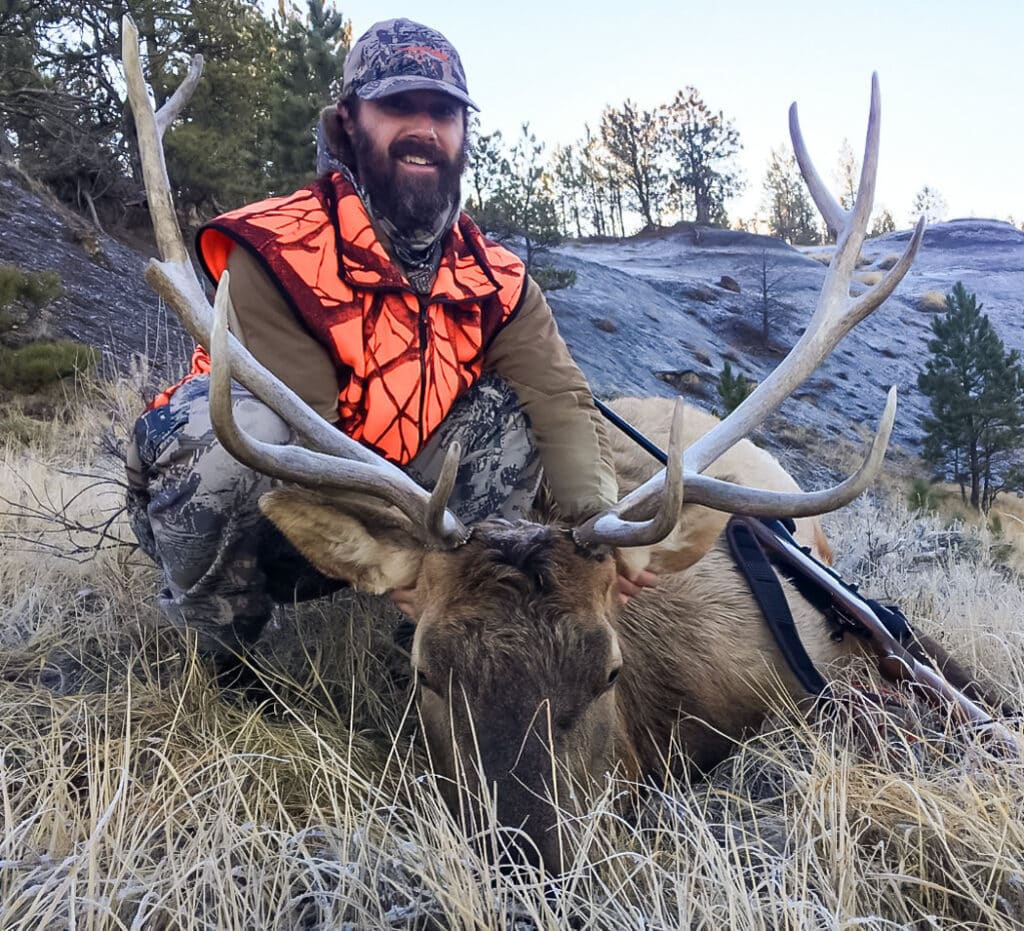The Bureau of Land Management (BLM) has decided against a land exchange that would have resulted in the loss of public land known as the Durfee Hills. Billionaire brothers Dan and Farris Wilks were proposing to exchange their Anchor Ranch, which sits just north of the Missouri River in Blaine County, along with other lands, for the Durfee Hills, a landlocked parcel of BLM property which sits inside the Wilks’ NBar Ranch in Fergus County.
MWF had opposed the land transfer on the grounds that it was not a fair value trade. To lose Durfee Hills would have resulted in the loss of some of the best elk habitat in the state. The Wilks contended the land trade would open the Bullwhacker Road as access to the Upper Missouri River Breaks National Monument south of Anchor Ranch. However, that area is already accessible by boat on the river and from roads farther upstream. MWF believes that by partnering with sportsmen and other conservation groups, it can increase access to the monument without giving up public lands such as the Durfee Hills.
The victory can be attributed to local sportsmen of the Central Montana Outdoor group, along with the help of the MWF, both of whom worked tirelessly to stop the transfer. Doug Krings, speaking on behalf of Central Montana Outdoors said “you only get to keep what you are willing to fight for.”
Mark Albers, BLM’s Central Montana District Manager, said that the decision against pursuing the transfer was a result of competing priorities.
The Durfee Hills is one of many important BLM-managed lands in central Montana that rovide unequalled habitat for everything from sage grouse to trophy bull elk and are available for the public to enjoy. The value of this landscape to Montanans stems from its habitat which provides for world-class diversity and healthy populations of wildlife.
The BLM is currently working on a Resource Management Plan for the Lewistown area. As the BLM’s Lewistown Field Office prepares its draft Resource Management Plan, we as sportsmen and conservationists must ensure that the BLM recognizes this opportunity to protect these lands for their habitat and wildlife value. The BLM will be accepting public comment when the draft is released; it is our duty to tell them to protect this valuable habitat for us and future generations to enjoy.
John Bradley is Montana Wildlife Federation’s Eastern Field Representative. You can send him questions or comments at jbradley@mtwf.org.


